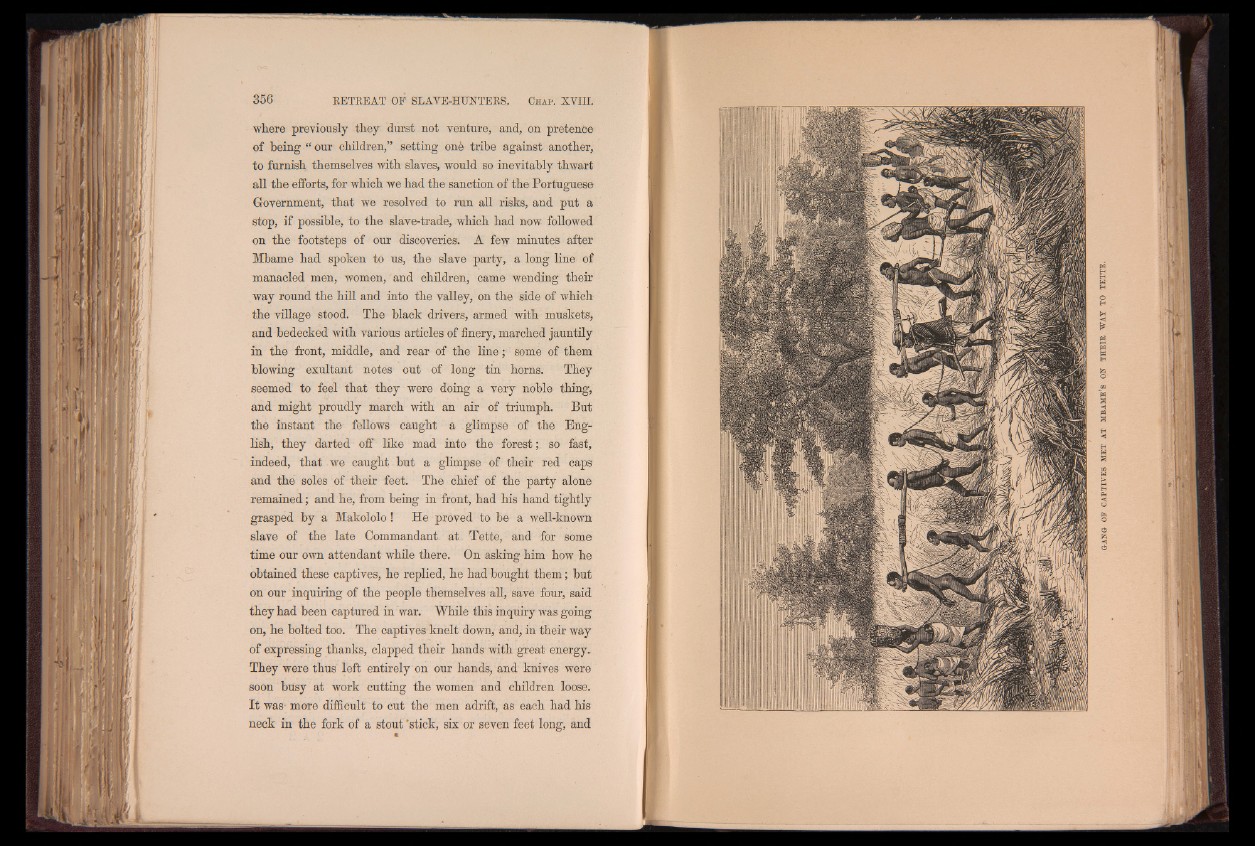
where previously they durst not venture, and, on pretence
of being “ our children,” setting one tribe against another,
to furnish themselves with slaves, would so inevitably thwart
all the efforts, for which we had the sanction of the Portuguese
Government, that we resolved to run all risks, and put a
stop, if possible, to the slave-trade, which had now followed
on the footsteps of our discoveries. A few minutes after
Mbame had spoken to us, the slave party, a long line of
manacled men, women, and children, came wending their
way round the hill and into the valley, on the side of which
the village stood. The black drivers, armed with muskets,
and bedecked with various articles of finery, marched jauntily
in the front, middle, and rear of the lin e; some of them
blowing exultant notes out of long tin horns. They
seemed to feel that they were doing a very noble thing,
and might proudly march with an air of triumph. But
the instant the fellows caught a glimpse of the English,
they darted off like mad into the forest;! so fast,
indeed, that we caught but a glimpse of their red caps
and the soles of their feet. The chief of the party alone
remained; and he, from being in front, had his hand tightly
grasped by a Makololo! He proved to be a well-known
slave of the late Commandant at Tette, and for some
time our own attendant while there. On asking him how he
obtained these captives, he replied, he had bought them; but
on our inquiring of the people themselves all, save four, said
they had been captured in war. While this inquiry was going
on, he bolted too. The captives knelt down, and, in their way
of expressing thanks, clapped their hands with great energy.
They were thus left entirely on our hands, and knives were
soon busy at work cutting the women and children loose.
I t was more difficult to cut the men adrift, as each had his
neck in the fork of a stout 'stick, six or seven feet long, and